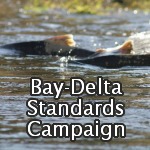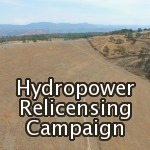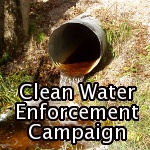The Hydropower Reform Coalition (HRC), including CSPA and allied hydropower advocates, has submitted extensive comments in opposition to the Trump Administration’s attack on Section 401 of the Clean Water Act. Trump’s Administrator of the Environmental Protection Agency (EPA) released a new Proposed Rule on August 22, 2019 that would roll back protections for water quality as required in statute and as affirmed in numerous Supreme Court decisions.
Clean Water Act Section 401 places requirements on applicants for a federal license or permit whose activity may cause a discharge into state waters. Such applicants must obtain a certification from the state where the activity occurs that the activity will conform with state laws regarding water quality. For hydropower projects licensed by the Federal Energy Regulatory Commission (FERC), this means that issuance of a certification must occur before FERC can issue a new license for a hydropower project. This is important because the jurisdictional state agencies (in California, the State Water Resources Control Board) generally apply environmental protections that are broader in scope and more stringent than the protections that FERC requires.
The Proposed Rule would reduce the scope of certification, even where previously affirmed in Supreme Court decisions. It would also place procedural requirements that would limit state review and make it more likely that the state’s certification authority would be “waived.” It would even allow federal agencies to overrule the state’s decisions, in explicit opposition to the law as written and as interpreted in the 1997 federal appeals court case American Rivers v. FERC.
In opposition to the Proposed Rule, Water Power Law Group PC and Tarrant, Gillies & Richardson prepared the HRC’s comments. The HRC’s comments demonstrate that the Proposed Rule is unlawful, would disrupt federal licensing proceedings, and would degrade water quality. The comments conclude: “In sum, the Proposed Rule would impede rather than advance the Act’s objective to ‘restore and maintain the chemical, physical, and biological integrity of the Nation’s waters.’ Accordingly, the EPA should not pursue the Proposed Rule.”









